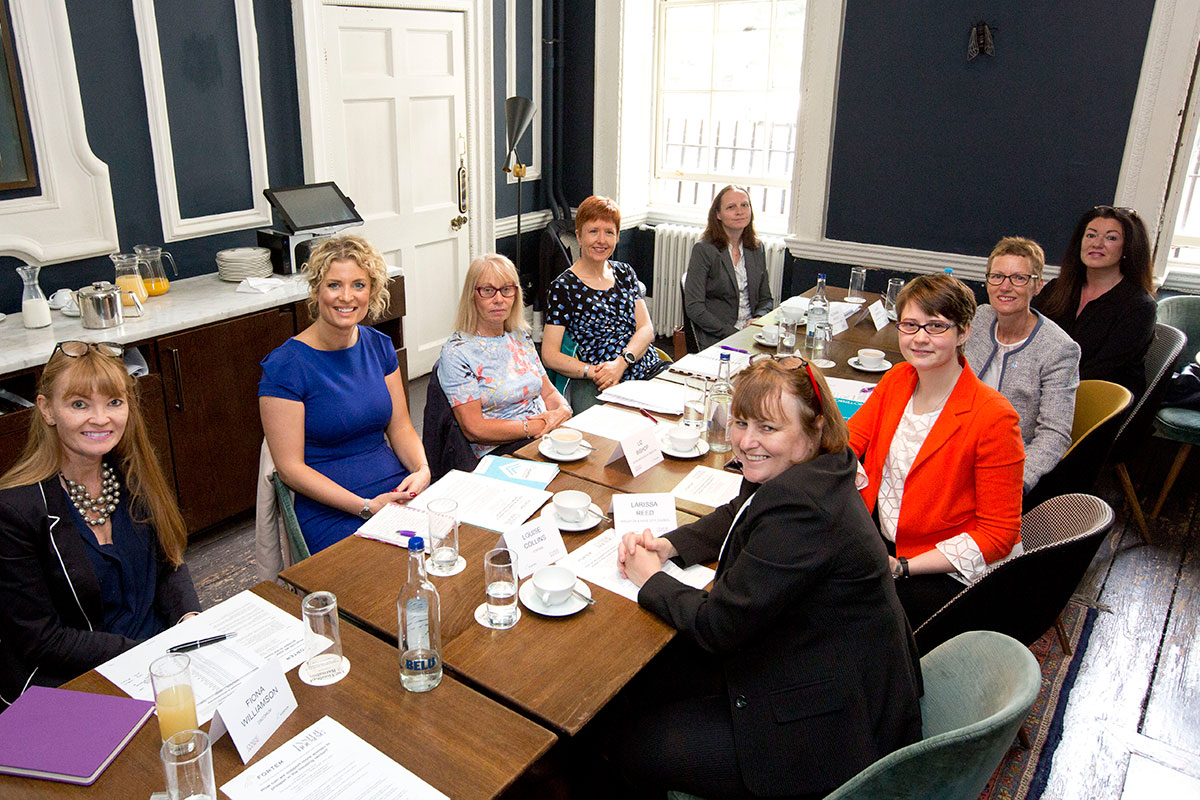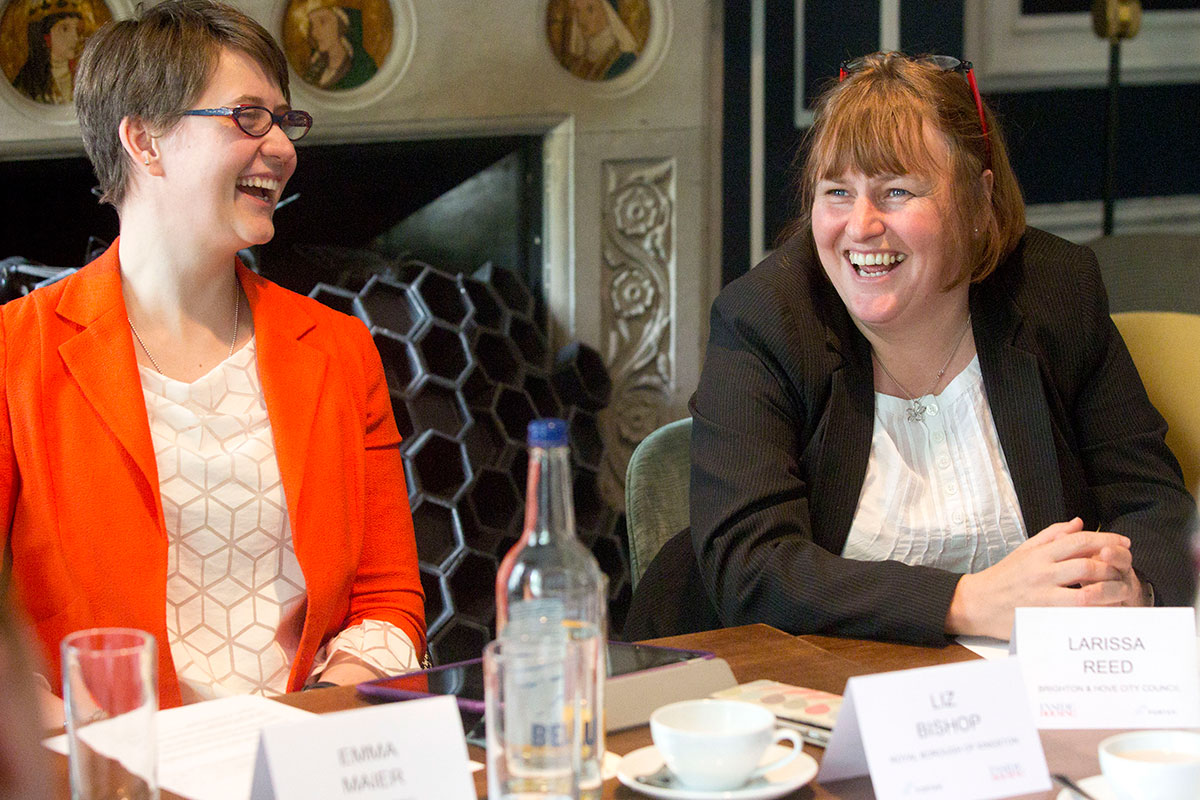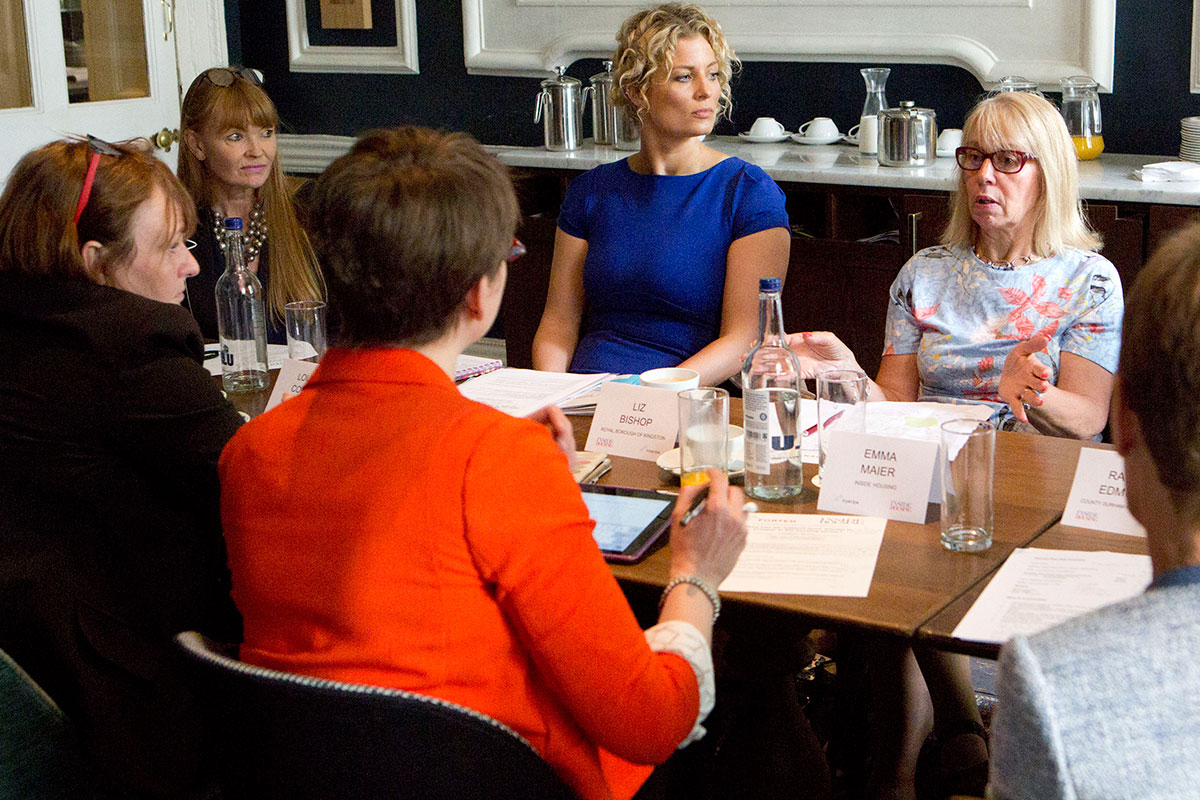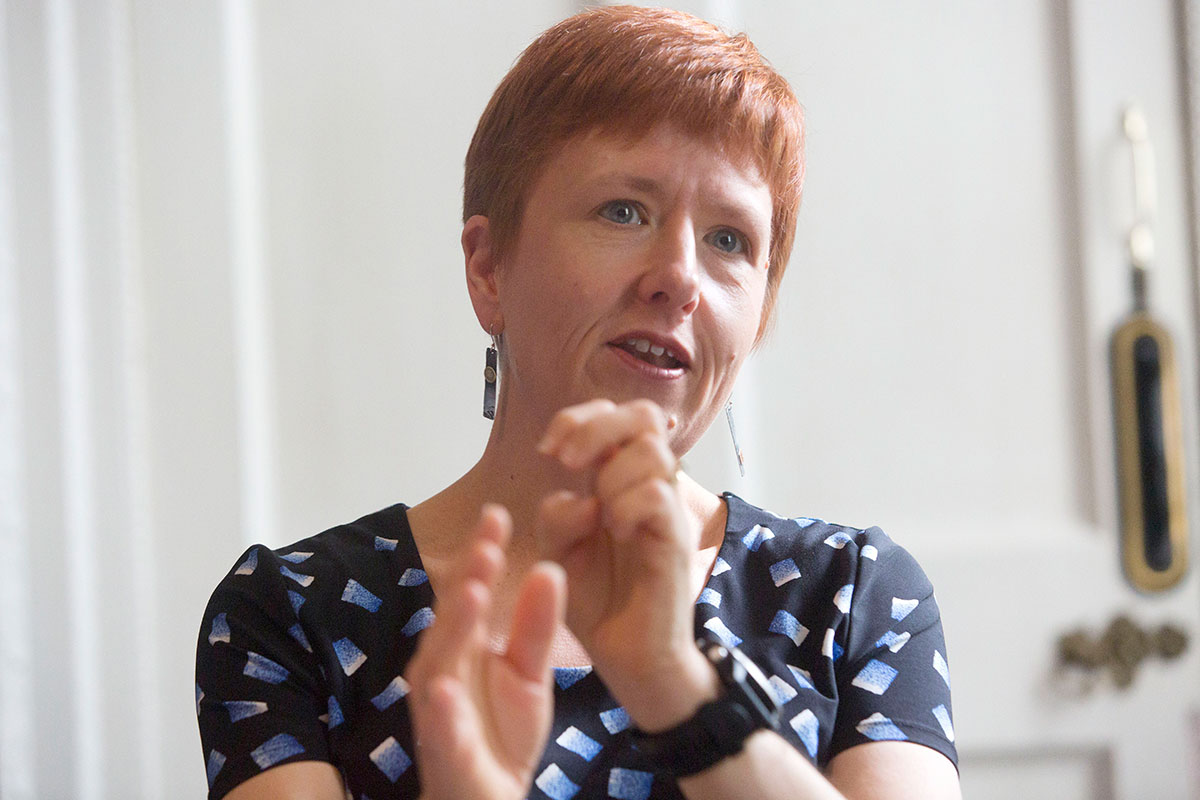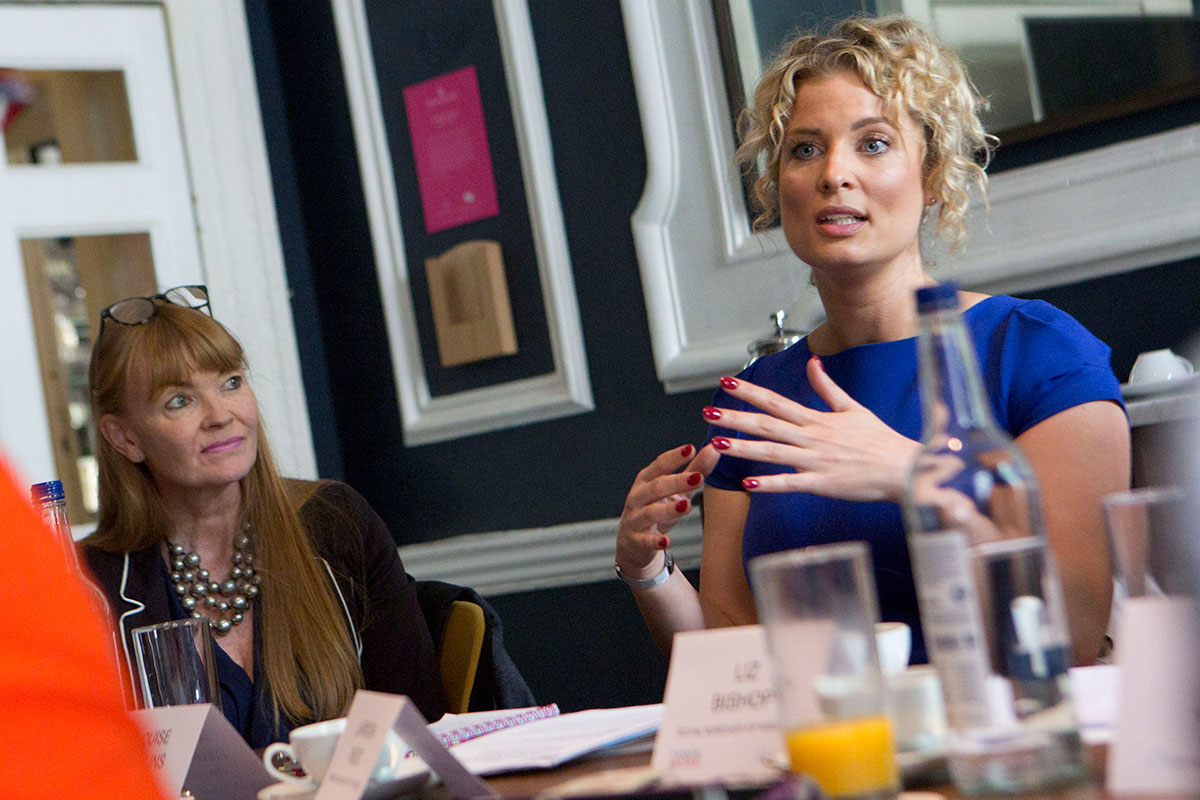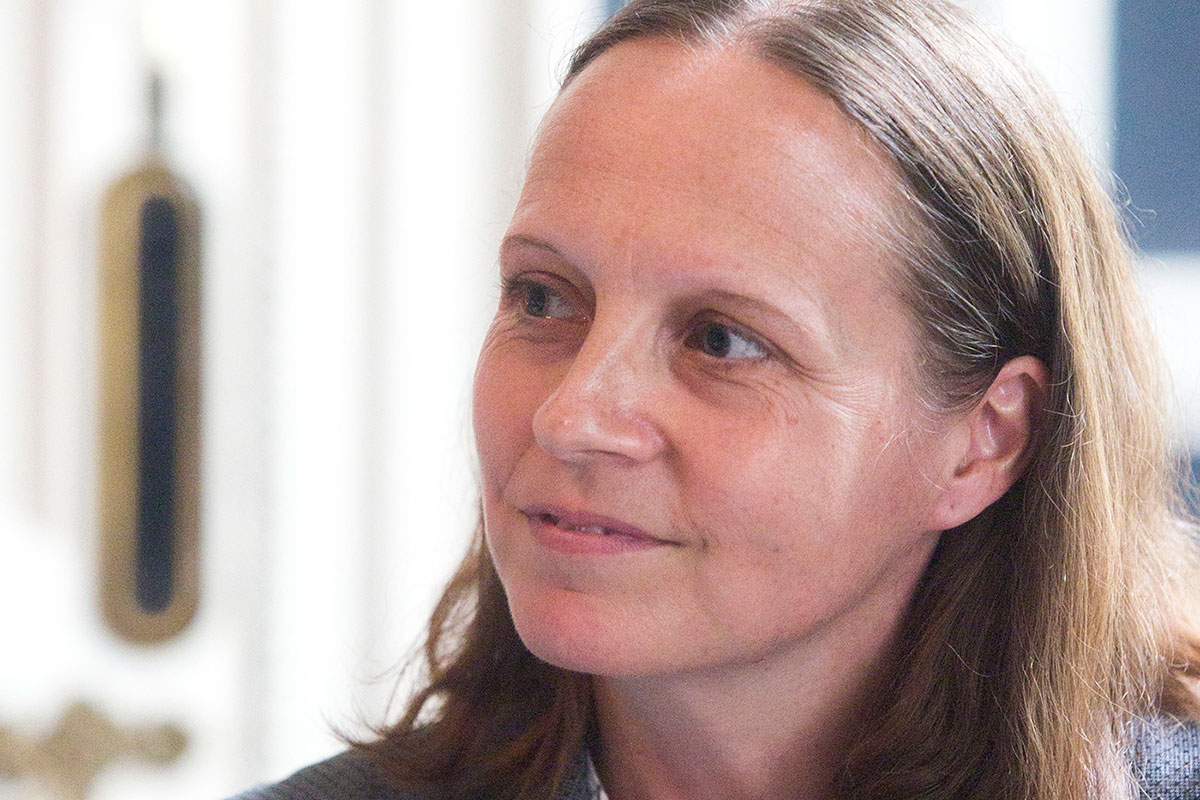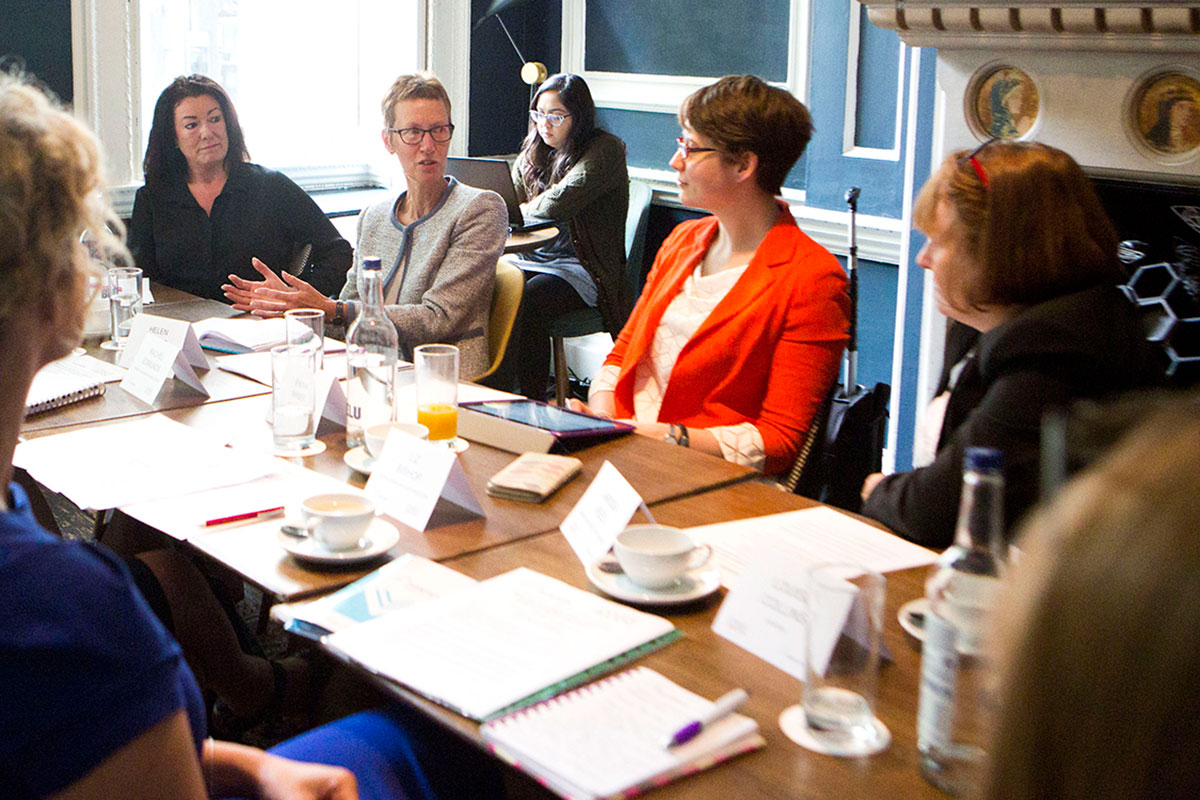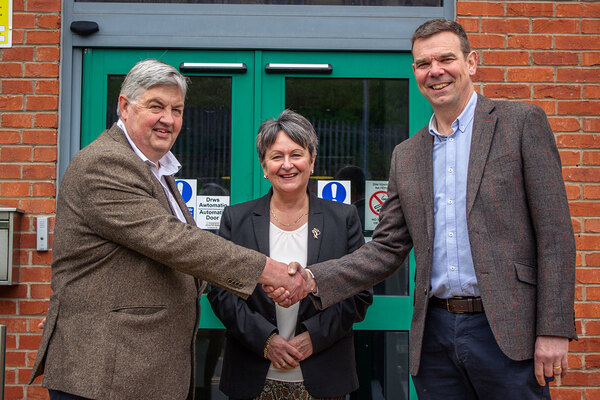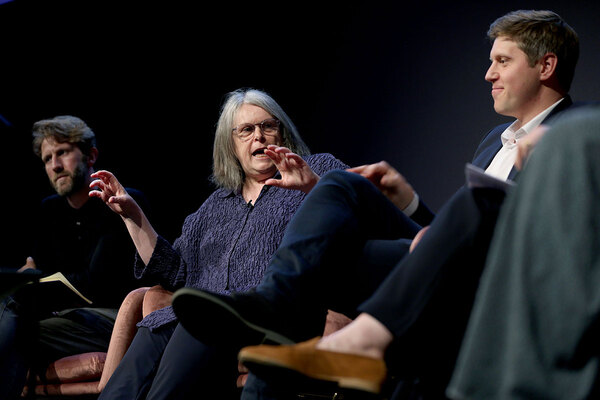Diversity debate
In light of the gender pay gap, #MeToo and a shortage of women in leadership positions in the sector, an all-female panel discusses how women can thrive in the workplace. Photography by Belinda Lawley
In association with:

When Larissa Reed attended a development contractor’s event 15 years ago, she enjoyed chatting with the woman next to her. Over dinner, she discovered that far from being a fellow housing professional, the woman was actually an escort paid by the contractor to entertain guests.
“That was a real [moment of]: ‘Oh, this really does happen’,” says Ms Reed, who was working for a housing association at that time and is now executive director of neighbourhoods, communities and housing at Brighton & Hove City Council.
The Financial Times’ exposé of the men-only Presidents Club charity fundraiser earlier this year showed that such sexism persists. The #MeToo movement and gender pay gap reporting by larger organisations have also put gender inequality in the headlines.
Housing compares favourably to many sectors, with more than eight out of 10 housing associations reporting a lower median gender pay gap – the difference between the mid-points in the distribution of men’s and women’s pay – than the national average of 18.4%.
Nevertheless, housing has a clear diversity problem. Separate research by Inside Housing found that while women make up 46% of the UK workforce, they only account for 34% of housing association chief executives, 39% of executive teams and 36% of boards.
Supporting women
But what can be done to address this lack of diversity? To discuss that challenging question, Inside Housing brings together an all-female panel for a round table. Run in association with property services company Fortem and chaired by Inside Housing editor Emma Maier, the panel discusses how housing can support women to prosper.
Helen Jaggar, chief executive of arm’s-length management organisation Berneslai Homes, stresses that it is in employers’ interests to encourage women. “Diversity… shouldn’t necessarily be a moral or ethical cause,” she tells the panel. “It’s about a business case.”
“People are thinking you may have to dash off at five o’clock to get the children’s tea.” - Suzanna Wood, head of housing strategy and partnerships, Waltham Forest Council
Earlier this year, a McKinsey & Company report found that companies in the top quartile for executive gender diversity were 21% more likely to experience above-average profitability compared to those in the bottom quartile.
Diversity is important for housing providers because they serve diverse communities, adds Ms Jaggar. It is therefore desirable to have a representative organisation with different people bringing different values and skill sets to the table, “which means you’re going to have a better debate and discussion about decisions that you make as a company”.
To be more welcoming to women, the panel suggests housing associations and local authorities need to support a work/life balance. Suzanna Wood, head of housing strategy and partnerships at Waltham Forest Council, says women applying to step up into higher roles after having children still suffer from judgements compared to men.
“People are looking at you and thinking you may have to dash off at five o’clock because you’ve got to get the children’s tea,” she says, adding that working mums do a “juggling act”.
When Fiona Williamson, assistant director of housing at Dacorum Council, started working for the local authority she did a job share with a father who said he preferred to be at home but accepted he was “in a minority”.
“I don’t know whether there’s a long way to go or actually whether we need to acknowledge there are some differences in terms of how [men and women] think and operate,” says Ms Williamson. “Whether that’s societal conditioning, or whether that is gender specific, who knows, because the two are interlinked.”
Berneslai Homes offers flexible working and compressed hours for all staff, but Ms Jaggar says men do not take them up to the same degree as women. “As an employer, I think it’s incumbent on us to make sure we have got those work/life balance practices and ensure that people use them… for what suits them best,” she says, adding that language is important in how organisations promote flexible working.
Louise Collins, acting head of HR at Fortem, agrees. “What we are trying to work towards is there are benefits for everybody, you don’t need to tell us why you need to work flexibly,” she says. “You might work flexibly because you like to play sports and that suits that.”
“Whatever we do to be flexible, it’s got to be for everyone and… business driven.” - Larissa Reed, executive director of neighbourhoods, communities and housing, Brighton & Hove City Council
But Ms Reed suggests arrangements need to be reviewed over time to make sure they do indeed work for everyone. As evidence, she cites Brighton & Hove City Council’s decision about 10 years ago to offer “family-friendly” term-time-only contracts. The problem, she says, is that new staff with children now struggle to get time off during school holidays because those on the term-only contracts are away – even though their children have long since grown up.
“I do think that whatever as an organisation we do to try and be flexible, it’s got to be for everyone and… business driven,” she says. “But it’s also got to be reviewable.”
Brighton & Hove City Council has a mean gender pay gap of -6%, and median gap of -7.3%, meaning women’s hourly rates are higher than men’s on average. But Ms Reed says employers need to be “smarter” about the data than simply looking at the headline. Analysing her department team by team revealed that in one part of housing, all the officers bar one were women, yet all four managers were men. “To me, that’s the inequality,” she says.
Steps organisations are taking to embed gender equality in their talent management include providing equality and diversity training. Staff at Berneslai Homes have also taken part in unconscious bias training, which allowed employees to have conversations they might not otherwise have had.
Gender diversity
Ms Jaggar believes the issue of gender diversity comes down to how organisations champion it and what strong women, such as those around the table, do in the workplace – such as offering to be mentors or doing “back to the floor” sessions to show how they got where they are.
Ms Reed was offered a different kind of role model when joining an all-male management team. Her male boss tried to make her feel welcome by matching her with a female colleague so she would have someone with whom to discuss “women’s things”. “It was done with the absolute best intentions… but that was someone’s unconscious bias,” she says.
She admits that she, in turn, may have got it “badly wrong” with a disabled or black colleague when she thought she was doing the right thing. “There is a huge difference between unconscious bias and prejudice,” she says. “And I think we [women] can become a little too sensitive if we’re not careful.”
“It’s also about capturing people further on in their careers.” - Liz Bishop, housing transformation and operations interim, Kingston Council
The panel believes mentoring to be valuable in helping women progress their careers. Rachel Edmunds, community investment manager at County Durham Housing Group, says her housing association is running programmes for its leaders and managers, and then will look at how it can support other members of staff to achieve their goals. “It’s about empowering people to say, ‘Actually, this is [what] I am happiest doing,’ or, ‘I want to go a bit further – but I don’t want to go all the way to the top because I’ve got this priority or this priority,’ or, ‘I want to work part-time and how can I achieve while working part-time?’”
While housing’s lack of gender diversity might be most visible at the top, the issue extends down through organisations, with the sector facing a particular challenge recruiting women into trades. Ms Collins, who was wolf-whistled at by a subcontractor when arriving on site to deliver equality and diversity training about four-and-a-half years ago, says the industry standard is that 1% of tradespeople are women.
In an effort to attract a more diverse pool of candidates, Fortem has taken out references to age when promoting apprenticeships and, although it still targets schools, it is working with local authorities and communities to advertise apprenticeships “for everybody and anybody”. A total of 11% of its apprentices are female, as are 2% of its tradespeople.
Older focus
Liz Bishop, housing transformation and operations interim at Kingston Council, believes the sector should target older candidates working in specialisms such as finance and IT. “I think it’s also about capturing people who are perhaps further on in their careers,” she says.
Berneslai Homes works with schools and colleges to promote housing as a career, and ran a Girl Power project to encourage female applicants for its trades apprenticeships.
But Ms Jaggar, who thinks organisations should use social media to promote gender diversity and role models, says there is an underlying issue with the careers advice given in schools, and queries whether it is “that sort of occupational segregation where boys are funnelled one way and girls are funnelled another”.
Julie Griffin, head of housing options at Birmingham City Council, “fell into” housing. “I think it absolutely has to be at the forefront of that careers advice for young people so people know it is actually a career,” she says.
“Things have changed – but there is still a long way to go.” - Fiona Williamson, assistant director of housing, Dacorum
The panel agrees that pushing housing as a valued profession is a key step the sector can take to improve gender diversity. Ms Reed urges the Chartered Institute of Housing to do more to promote housing outside the sector, but all organisations will need to play their part if housing is to become more gender diverse.
Ms Williamson seems to sum up the mood of the panel when she says: “I genuinely believe things have changed – but I also believe there is still a long way to go.”
Participants
Liz Bishop
Housing transformation and operations interim, Kingston Council
Louise Collins
Acting head of HR, Fortem
Rachel Edmunds
Community investment manager, County Durham Housing Group
Julie Griffin
Head of housing options, Birmingham City Council
Helen Jaggar
Chief executive, Berneslai Homes
Emma Maier
Editor-in-chief, Inside Housing
Larissa Reed
Executive director of neighbourhoods, communities and housing, Brighton & Hove City Council
Fiona Williamson
Assistant director of housing, Dacorum
Suzanna Wood
Head of housing strategy and partnerships, Waltham Forest Council
